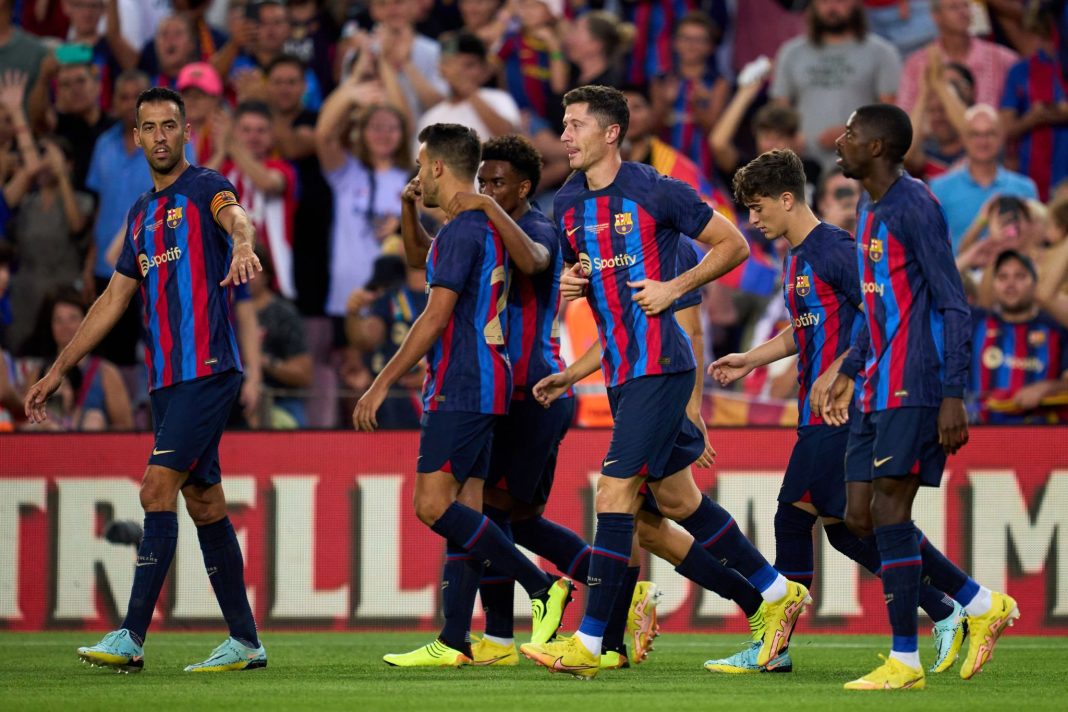

camisa fiorentina
The History and Significance of Fiorentina Football Club's Jersey
Por um escritor misterioso
Atualizada- dezembro. 30, 2024
Discover the rich history and cultural significance behind Fiorentina Football Club's iconic jersey, known for its distinctive purple color and unique design.


Fiorentina Football Club, also known as ACF Fiorentina, is a professional football club based in Florence, Italy. Founded in 1926, the club has a passionate fan base and a long-standing tradition of sporting success. One of the most recognizable aspects of Fiorentina's identity is their distinct purple jersey.
The introduction of the purple jersey can be traced back to the club's early years. When ACF Fiorentina was founded, they adopted violet as their official color. It is said that this choice was influenced by Florence's historical ties to the Medici family, who used violet as their emblematic color during the Renaissance period.
Over the years, Fiorentina's jersey design has undergone several alterations but has always maintained its signature purple hue. The iconic purple color represents not only the club's connection to Florence but also symbolizes elegance, royalty, and uniqueness.
One notable feature of Fiorentina's jerseys is the inclusion of a white or silver fleur-de-lis symbol on the chest area. The fleur-de-lis is another nod to Florence's historical heritage, as it was commonly used in Florentine coats-of-arms during medieval times. This symbol further emphasizes the club's strong ties to its city and its proud Florentine identity.
In addition to its historical significance, Fiorentina's jersey has also become synonymous with some of football's greatest moments. Throughout the years, many legendary players have donned the purple shirt, leaving an indelible mark on both Italian and international football.
One such player is Gabriel Batistuta, an Argentine striker who played for Fiorentina from 1991 to 2000. Batistuta is widely regarded as one of the greatest players in Fiorentina's history and was known for his incredible goal-scoring ability. His performances in the purple jersey earned him a place in the hearts of Fiorentina fans and cemented his status as a club legend.
Another memorable moment involving Fiorentina's jersey came during the UEFA Cup Winners' Cup final in 1961. Facing Glasgow Rangers, Fiorentina secured a historic victory with a 2-0 win, claiming their first major European title. The image of captain Sergio Cervato lifting the trophy while wearing the iconic purple jersey remains etched in the memories of Fiorentina supporters.
Fiorentina's jersey has also been admired by football enthusiasts around the world for its aesthetic appeal. The combination of the vibrant purple color and the intricate design elements makes it stand out among other football jerseys. Its unique appearance has even led to collaborations with fashion brands, further solidifying its status as an iconic piece of sports apparel.
The popularity and cultural significance of Fiorentina's jersey extend beyond football. It has become a symbol of pride for both residents of Florence and fans of Italian football worldwide. The distinct purple hue can often be seen adorning streets, cafes, and shops throughout Florence, showcasing the city's unwavering support for their beloved club.
In conclusion, Fiorentina Football Club's jersey holds immense historical and cultural significance. The iconic purple color represents not only the club's connection to Florence but also embodies elegance and uniqueness. With its inclusion of symbolic elements such as the fleur-de-lis, this jersey serves as a reminder of Florence's rich heritage. Beyond its symbolism, it has become associated with unforgettable moments in football history and continues to captivate fans with its eye-catching design. Whether on the pitch or off it, Fiorentina's jersey stands as a proud symbol of the club's legacy and enduring spirit.



Tombense x Londrina: placar ao vivo, escalações, lances, gols e mais

Um Barça de Champions goleia o Pumas e conquista o Troféu Joan Gamper - Aqui Catalunha
Fiorentina Football Club, also known as ACF Fiorentina, is a professional football club based in Florence, Italy. Founded in 1926, the club has a passionate fan base and a long-standing tradition of sporting success. One of the most recognizable aspects of Fiorentina's identity is their distinct purple jersey.
The introduction of the purple jersey can be traced back to the club's early years. When ACF Fiorentina was founded, they adopted violet as their official color. It is said that this choice was influenced by Florence's historical ties to the Medici family, who used violet as their emblematic color during the Renaissance period.
Over the years, Fiorentina's jersey design has undergone several alterations but has always maintained its signature purple hue. The iconic purple color represents not only the club's connection to Florence but also symbolizes elegance, royalty, and uniqueness.
One notable feature of Fiorentina's jerseys is the inclusion of a white or silver fleur-de-lis symbol on the chest area. The fleur-de-lis is another nod to Florence's historical heritage, as it was commonly used in Florentine coats-of-arms during medieval times. This symbol further emphasizes the club's strong ties to its city and its proud Florentine identity.
In addition to its historical significance, Fiorentina's jersey has also become synonymous with some of football's greatest moments. Throughout the years, many legendary players have donned the purple shirt, leaving an indelible mark on both Italian and international football.
One such player is Gabriel Batistuta, an Argentine striker who played for Fiorentina from 1991 to 2000. Batistuta is widely regarded as one of the greatest players in Fiorentina's history and was known for his incredible goal-scoring ability. His performances in the purple jersey earned him a place in the hearts of Fiorentina fans and cemented his status as a club legend.
Another memorable moment involving Fiorentina's jersey came during the UEFA Cup Winners' Cup final in 1961. Facing Glasgow Rangers, Fiorentina secured a historic victory with a 2-0 win, claiming their first major European title. The image of captain Sergio Cervato lifting the trophy while wearing the iconic purple jersey remains etched in the memories of Fiorentina supporters.
Fiorentina's jersey has also been admired by football enthusiasts around the world for its aesthetic appeal. The combination of the vibrant purple color and the intricate design elements makes it stand out among other football jerseys. Its unique appearance has even led to collaborations with fashion brands, further solidifying its status as an iconic piece of sports apparel.
The popularity and cultural significance of Fiorentina's jersey extend beyond football. It has become a symbol of pride for both residents of Florence and fans of Italian football worldwide. The distinct purple hue can often be seen adorning streets, cafes, and shops throughout Florence, showcasing the city's unwavering support for their beloved club.
In conclusion, Fiorentina Football Club's jersey holds immense historical and cultural significance. The iconic purple color represents not only the club's connection to Florence but also embodies elegance and uniqueness. With its inclusion of symbolic elements such as the fleur-de-lis, this jersey serves as a reminder of Florence's rich heritage. Beyond its symbolism, it has become associated with unforgettable moments in football history and continues to captivate fans with its eye-catching design. Whether on the pitch or off it, Fiorentina's jersey stands as a proud symbol of the club's legacy and enduring spirit.

Vélez Sarsfield x Boca Juniors: saiba onde assistir jogo do Campeonato Argentino

:quality(75)/cloudfront-us-east-1.images.arcpublishing.com/elcomercio/AIS6KTTSU5AINIKLXUJ24M3AYE.jpg)

